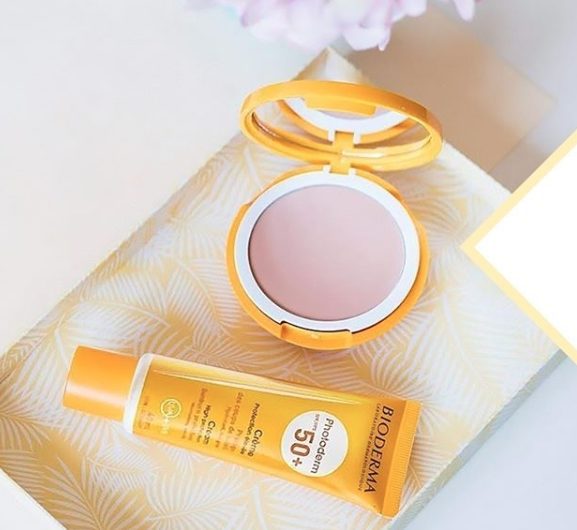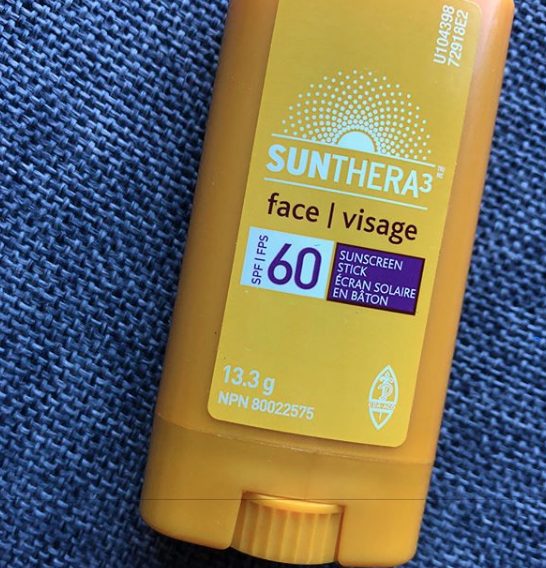Why you should switch to mineral sunscreen
Why you should consider mineral and paraben-free sunscreen this summer


With skin cancer continuing to account for one in three cancer diagnoses worldwide, we can all benefit from a reminder to protect ourselves–by covering up, seeking shade, and using sunscreen. However, many of us are guilty of skipping the sunscreen, sometimes because of fears about what’s in it. Some argue that in protecting ourselves against skin cancer, we might be absorbing chemicals that could make us sick in other ways.
Mineral sunscreens
In recent years there’s been a trend towards mineral-based sunscreens, which form a physical barrier on the surface of your skin, as opposed to chemical sunscreens, which are absorbed into the skin. And traditional chemical ingredients like avobenzone and oxybenzone have come under scrutiny for possible toxicity.
Mineral sunscreens use zinc oxide or titanium oxide (or both) to repel the sun’s harmful UVA and UVB rays. The downside to mineral sunscreens is that they appear white when applied on the skin (though we found one that claims to dry clear). Some brands have developed tinted products to address consumers’ distaste for the whiteness.
Be aware that several brands display the Canadian Dermatology Association crest, which does not discriminate between chemical and mineral sunscreens.
Most sunscreens are now water-resistant and sweatproof. How well they work is largely individual. (Sweat is salty, and if it runs down your forehead and into your eyes, it’s going to sting, whether combined with sunscreen or not. The best defense is a hat, visor or headband.)
Parabens
Parabens are synthetic preservatives that keep your product from going bad on your bathroom shelf, but which mimic the female sex hormone estrogen, which is linked to breast tumours and reproductive issues. Parabens are readily absorbed into our organs and bloodstream when applied on the skin. They usually have long names like ethylparaben, isobutylparaben, and propylparaben, and many products contain multiple parabens.
According to the David Suzuki Foundation’s website, parabens have been detected in urine and in breast tumours. But the research is spotty, and though five are banned in Europe, they are still fully legal in Canada. Luckily there are more natural alternatives.
RELATED: Which sports sunscreens will actually stand up to sweat?
Here is a selection of mineral and paraben-free sunscreens. Some you may find at the beauty counter rather than displayed with the cheaper brands. (The advantage is that beauty counter brands, though more expensive, sometimes have testers, so you can try before you buy.)
La Roche-Posay Anthelios Mineral Ultra-Fluid Body Lotion SPF 50
This is a tinted product. You’ll want to try a tester to make sure it blends with your skin tone.

KINeSYS Performance Sunscreen
KINeSYS is a Canadian company with three products whose non-greasy formulations are specifically designed for outdoor athletes. The SPF 50 Fragrance Free product comes in an ergonomic bottle for ease of use. All three products are oxybenzone-free and the SPF 30 Clear Zinc is 100 per cent mineral.

Aveeno Sensitive Skin Mineral Sunscreen and Aveeno Baby Sunscreen SPF 50
Both products are mineral-based. The baby product is also paraben-free.

Sun Bum Signature Mineral Based Moisturizing Sunscreen Lotion SPF 50
Fragrance-free and paraben-free. The line has a number of s0-called “natural” products but only one mineral-based sunscreen, which can be ordered from the well.ca site.

Neutrogena Sheer Zinc SPF 50
Paraben-free mineral lotion that dries clear.

Bioderma Photoderm Compact 50+
Comes in two shades (light and golden)

Sunthera3 Sunscreen Stick SPF 60
It’s mineral, though it doesn’t say so on the packaging.

Attitude
This company, for whom ingredient safety is top-of-mind, offers various products, all mineral. Some are paraben-free, and some are fragrance-free. SPF 30 may be enough depending on how long you’ll be out there but if running for more than an hour, go for a higher SPF.



